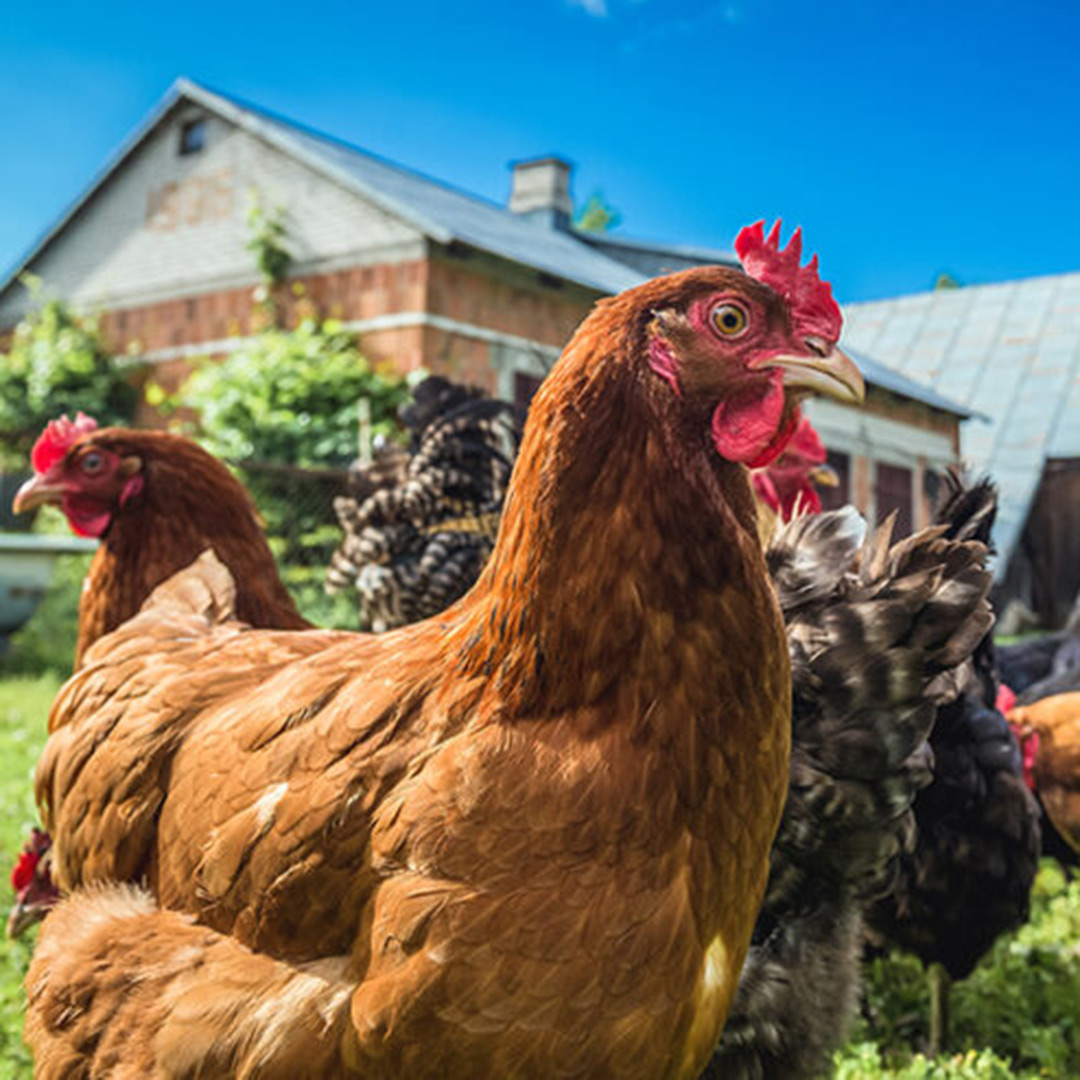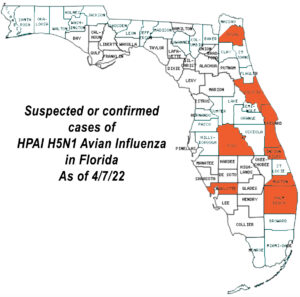Avian Influenza found in Florida
Avian Influenza has been reported in Florida, and it is a topic that should be worrisome to all of us. Not only from a health perspective (more on that in a minute)- but from an economic one as well.
Avian Influenza is a highly contagious disease that affects a wide variety of birds. Due to the highly migratory nature of birds, the disease can spread rapidly during the migration months, but a bird does not need to be a migratory species to fall ill, or die from the disease. Birds that are commonly susceptible to Avian Influenza are waterfowl, such as ducks, geese, swans, gulls and terns. Shorebirds like storks, plovers and sandpipers can also get it, as well as raptors- like eagles and hawks. Even the common crow is a potential target. Of course, wild birds are a big concern- but the bigger threat is to our nation’s poultry- including backyard chickens.

What is Avian Influenza, and how is it spread?
Avian Influenza is a viral disease that can affect all species of birds. It is classified into two separate categories. The first is Low Pathogenic Avian Influenza (LPAI). This is found typically in wild birds as well as domestic poultry. LPAI is pretty common, and usually causes little or no signs of disease in birds or flocks. The second category is HPAI- which is Highly Pathogenic Avian Influenza. This is the outbreak we are watching very closely, since it is highly contagious and can kill thousands, if not hundreds of thousands of birds.
The worst hit state is Iowa, where close to 13 million birds (chickens and turkeys) have either died from the disease, or have been culled in an attempt to stem the spread of the disease to even more birds. Nationwide, the number of birds who have died or have been culled is approaching 23 million, and likely will continue to rise. The culling of this number of birds will certainly have an effect on poultry prices at your local grocer.
HPAI is spread through nasal secretions, saliva or via feces of infected birds. Poultry facilities are hit extremely hard due to the density of birds contained in a relatively small area.
Can Avian Flu make me or my pet sick?
It is unlikely, unless your pet is a bird. At the time of publication, no humans have been infected, and it is unlikely that this could occur. If you do have birds, including chickens, here’s a link on steps you can take to protect them against HPAI. (The USDA Website has been experiencing connectivity issues lately- but the link is verified).
I have chickens. What are the symptoms of bird flu?
- Some of the symptoms include, but are not limited to:
- Lethargy/lack of energy
- Decreased appetite
- Loss of coordination
- Purple discoloration or swelling of various body parts
- Diarrhea
- Coughing/sneezing
- Reduced egg production
- Soft-shelled eggs or misshapen eggs
Sadly, many birds do not show many, if any outward clinical symptoms prior to a sudden death. If you happen to notice any of these symptoms in your backyard flock, notify your veterinarian immediately. Tell them that your chicken(s) are exhibiting potential symptoms of Avian Flu.
Is there anything that can be done to prevent this from spreading even more?
Beyond maintaining proper biosecurity protocols, there isn’t much more that can be done at this moment. There is no current vaccine in production. There has been discussion about a vaccine, and if one is created, it would take months of research and development before being eligible for FDA approval. We will keep our eyes open for more information on this as time goes on.
What should I when finding a dead bird?
The Florida Fish and Wildlife Commission (FWC) should be notified of any suspected avian deaths related to HPAI. They have an online form where suspicious deaths can be reported.

Where has HPAI been found in Florida?
At the time of this posting, HPAI has been found mainly along the eastern side of Florida, but recently has been identified in wild birds in Polk County and Charlotte County to our south. Due to the highly contagious nature of the disease, everyone with a vested interest in birds has reason for concern and diligence. This includes persons who have backyard chickens, as well as the thousands of hunters who hunt for waterfowl and turkeys within our state.
